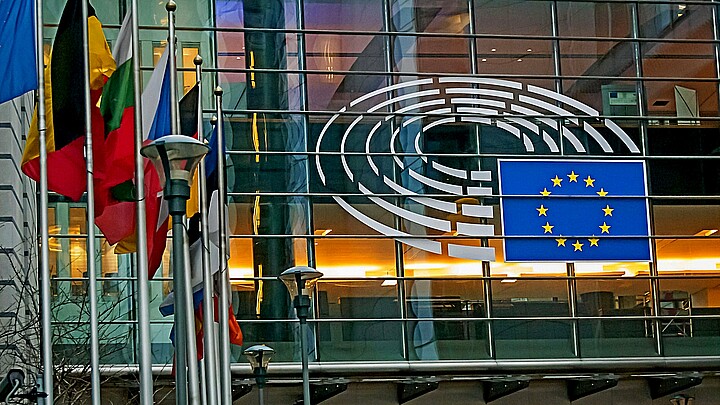Immigration
Colombians and Venezuelans are seeking asylum in Europe at an alarming rate
The increase in asylum cases comes at a time when Venezuelans continue to flee their homes as the economy continues to crumble and terrorist driven violence in Colombia continues to grow
January 28, 2022 2:17pm
Updated: January 30, 2022 11:57am
Asylum applications in Europe have skyrocketed and around 71,400 applications for international protection were filed in the European Union, Norway, Switzerland and the U.K. in Nov. 2021, according to data released on Friday by the European Union Agency for Asylum (EUAA).
According to the data, asylum applications were up by 9% compared with Oct. 2021 and many countries received numbers that rivaled record-setting 2016.
Although Afghans and Syrians lodged the most applications, the report found that Venezuela and Colombia saw a major spike in its citizens seeking asylum in Europe. Venezuelans accounted for 3,300 applications in November (up 32% over October) and Colombians 2,500 (up 41%).
This increase in asylum cases comes at a time when Venezuelans continue to flee their homes as the economy continues to crumble and terrorist driven violence in Colombia continues to grow.
Tensions have been growing along the Colombia-Venezuela border following a wave of targeted assassinations by National Liberation Army (ELN) guerrillas against dissidents of the Revolutionary Armed Forces of Colombia (FARC).
Sen. Marco Rubio sent a letter to President Joe Biden on Jan. 11 urging him to support the Colombian government as it seeks to address the destabilizing impact that narco-terrorism has on both Colombia and the Western Hemisphere.
In his letter to Biden, Rubio wrote, “I urge your administration to maintain and strengthen the United States’ longstanding commitment to, and mutually beneficial relationship with, the Republic of Colombia in the coming years."
“This should include exploring what additional support the United States can provide to Colombia’s military and law enforcement bodies to prevent future violence; preserve the integrity of Colombia’s elections from outside interference; and ensuring that U.S. international assistance does not benefit current or former members of terrorist organizations that further the violence. Our nation’s unwavering support to Colombia should not be a partisan cause,” the letter continued.
In November, the U.S. State Dept. announced that it would remove several Colombian paramilitary groups – including FARC – from the Foreign Terrorist Organization list, noting that “following a 2016 Peace Accord with the Colombian government, the FARC formally dissolved and disarmed,” and assuring that “it no longer exists as a unified organization that engages in terrorism or terrorist activity or has the capability or intent to do so.”
Although the Biden administration has assured Americans that FARC is no longer a cause for concern, the renewed violence in Colombia’s Arauca and Norte de Santander provinces appears to shine a light on Rubio’s previous warnings.
According to a 2018 report released by Colombia's National Centre for Historical Memory, more than 260,000 people — mostly civilians — died from violence during six decades of guerrilla conflict in Colombia. The report also found that most of the 80,000 people who disappeared were never found. More than 37,000 of those killed were victims of kidnappings, and nearly 15,700 were victims of sexual violence.







